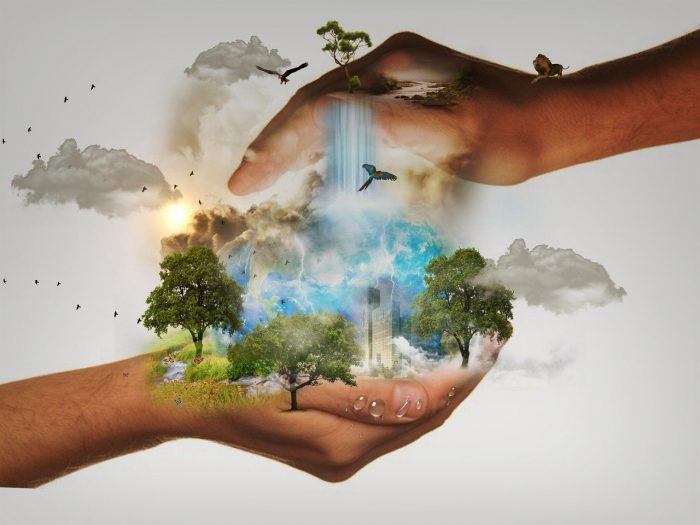Let’s make one thing perfectly clear: I am not a climate change denier.
The evidence speaks for itself. The weather on Earth is changing quickly and erratically, undeniably at the hands of human beings.
But I do have some questions. It boils down to this: What purpose does fear serve?
Fear has long been a tactic used by governments around the world to manipulate populations.
Fear was employed by the Nazis against the Jews to enlist thousands in its genocide. More recently, fear has been used (ironically) in the “anti-terror” movement to justify the wars in the Middle East, and to validate racism and bigotry at home. Fear of women and LGBTQ2 populations is the biggest obstacle in the quest for equal rights. Fear builds walls. Fear keeps guns in schools. Fear stalls true progress and stunts creativity. Fear blinds us.
We fear what we don’t know.
Climate change might be facing a similar issue, with real concerns becoming fear tactics to control populations.
If you’re an Earth-loving babe like me, you might not be aware of how your concern about the environment could unwittingly play into the hands of corporate interests. “Green” business has seen a huge boom since the climate crisis has become a daily news item. Yet rarely do we stop to ask if these new products are necessary. Do I need a compostable to-go cup when, with preparation, a to-go cup isn’t necessary at all?
The thing about fear is that it is a deep, primal emotion that stimulates our fight or flight response. It shuts down our ability to think logically. When we’re in stress mode, we make impulse decisions. Capitalism profits from this.
The facts are undeniably sobering—mass extinction, polar ice caps melting, raging fires, and arid deserts. But how that information is framed in the media diverts our attention away from the real issue: We need to examine how we, as individuals, can sustainably live on Earth.
Instead of working ourselves up to a state of peak anxiety around the latest enviro-disaster and frantically trying to donate money to relief efforts overseas, we could instead take a deep breath and look around our kitchen and into our hearts to examine how we are living our lives. Are we living slowly, mindfully, and respectfully? Or quickly, in a rapid consumer culture with little thought to the consequences of our actions and their impact on future generations?
Rather than focusing on whether our carbon footprint adds up to a near zero, or offsetting our emissions for that second trip overseas in a year, we could ask ourselves: What does it mean to live well? How can my life become a living, breathing celebration of the beauty of nature? How can I dance a dance of respect with the Earth and with all my human and non-human relations?
The idea here is to create a moral framework around what it means to be a good steward.
Unfortunately, in our individualistic society, many are coming up with paradoxical moral codes to justify their behaviour. I think of politicians who might be fighting legislatively for climate action, but who take private jets to their meetings.
In the past, the village and the elders of that village were responsible for creating and maintaining a moral framework. In the loss of the village, capitalism has stepped in to take its place. Now it is capitalism that makes our moral decisions, guided by our politicians who are tied to it like a dog on a chain.
The village, a community of concerned citizens, needs to come back. In our disillusionment with politics, and increasing apathy over anything actually changing, we need to take action into our own hands and become our own leaders.
Taking action can look like protesting in the street, but it can also look like developing a long-term relationship with how we want to love the Earth and be the best stewards of it for our children and communities.
Next time you hear the news, be mindful of the affect it has on your body. Notice if your heart rate goes up, or you immediately gravitate toward anger, anxiety, or depression. Ask yourself where those emotions lead you—toward empowered action, or toward disillusionment and guilt?
Crisis culture diverts our attention away from what has always mattered.
On the other hand, traditional Chinese medicine tells us that the earth element is responsible for grounding and creativity. It is the soft, sensuous place in our bodies where we feel relaxed, loving, and open. From this peaceful state, empowered action arises.
The Earth changes over millions of years. It is slow and powerful. Earth culture has a wisdom that we can access because it is in the very core of our DNA.
What the Earth needs of us now, it has needed for centuries. Earth needs for us to develop a long-term view of our short time here on the planet so that generations to come may enjoy the incredible abundance and diversity of this place we call home.












Read 7 comments and reply